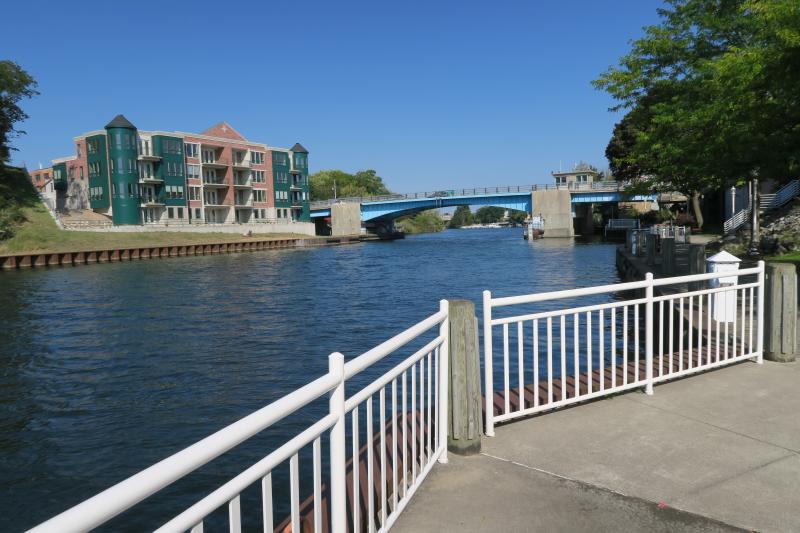A celebration fire created a walking dune in Michigan
Becky and I pedaled 1,100 miles across Delaware, Maryland, Pennsylvania, Ohio and Michigan to figure out that every day in America people get up each day and do the same things before lying down at the end of the day to rest from their activity. Be active, rest, be active, rest - do it all again. A Sisyphean task.
When they aren't doing, they talk about what they did, what they're going to do, or mostly about what others have done or haven't done. My father frequently said, "What's the point of living in a small town if you can't talk about people?" It's no different from talking about the characters in books we read. "All the world's a stage," said Willy Shakespeare.
Fueled by coffee, some of the most vigorous storytelling in towns big and small takes place in cafés and coffee shops where people cross paths and trade observations.
In Manistee, Michigan, I took in a story that made me realize how pivotal fire has been to this region.
In October 1871, following a hot, dry summer, many fires devastated towns large and small including the great Chicago fire, ones in Manistee and Holland, and others in neighboring Wisconsin. Those fires led to a lumber and architecture boom over the long term, but they were cataclysmic in the short term. But they're not the fire I want to tell about here.
Don't hold me to the facts, but generally the story goes like this:
Back about 1884, a great and unexpected Democrat wave swept across the country, resulting in Democrats being elected to lots and lots of offices including president and governor right on down through county council members and dog catchers. As was the habit of the time, such victories were celebrated with torch-light parades through the towns.
In Manistee, one such parade ended with a great bonfire atop a small mountain of a forested dune just north of the inlet.That inlet allows the waters of the Manistee River to flow into Lake Michigan.
Elections being autumn events, the weather was dry and so too the trees and vegetation. As is often said, fire is a wonderful slave but a terrible master. The bonfire soon grew beyond the celebrants' control. The resulting conflagration spreading across the dune forest didn't say much about the forward thinking of the Democrats, especially considering the fires of 1871 were still fresh memories.
Although the Manistee River protected the main part of town on the opposite bank, the bonfire-sparked inferno, in just a few days, cleared the mature hardwood forest and undergrowth that for centuries had stabilized the dune.
The seriousness of all that unfolded over the next few decades as the incessant westerly winds across Lake Michigan kept up their steady work.
At Cape Henlopen we can watch the strong northeasterly winds pushing the so-called walking dunes toward the southwest. Those invisible, buffeting forces easily lift tiny but infinite grains of sand, peppering ankles of beach walkers, spreading drifts across parking lots, pushing their slow, dry flood over gnarled pines, oaks and sassafras, eventually engulfing and suffocating trees while creating new dunes.
In Manistee, it's said, the fire worked quickly and furiously, leaving nothing of what was once verdant and self-sustaining but ashes and charred trees. But the damage surveyed during the hangover days following the post-election party told just a fraction of the story.
Over the next couple of decades, sand from the denuded dune blew over the downwind parts of town. Houses and other buildings began to disappear beneath the rising tide of sand. It had to be removed, and removed, and removed. The folks along the beaches in Delaware's coastal towns know all about that, but not on the scale felt in Manistee.
The only saving grace was that the enterprising people of the town found a market southward in the state for their assaulting sand. Around Detroit, the automobile business was blossoming and lots of sand was needed for the casting of engine blocks and other parts.
So that's the story, with all kinds of implications about people, nature's forces, the vagaries of politics, and balance. In Manistee, that dune, eventually shipped away for cement and cars, is a shadow of its former self but is slowly getting its vegetation back. It will take centuries for the forest to return.
In the meantime, in Manistee, they made lemonade from their lemons.





















































